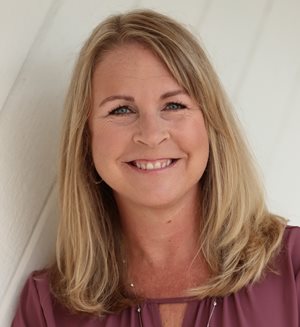The active engagement of community residents is at the core of many NeighborWorks network organizations. But how do you make sure that the resident involvement is effective? How do you make sure you, as a community-serving professional, are approaching the residents in an authentic way?
 Susan Harden, an educator whose career is built around community-based planning and visioning, will examine those questions and offer tools and techniques to encourage meaningful involvement during a three-part webinar offered during the NeighborWorks Virtual Training Institute (VTI), underway this week, Aug. 23-27. "Residents are the stakeholders when it comes to their communities," Harden says. "They're also the experts. When stakeholders are involved in the process or plan from the beginning, there's more carry through and more ability to make things happen and create positive change."
Susan Harden, an educator whose career is built around community-based planning and visioning, will examine those questions and offer tools and techniques to encourage meaningful involvement during a three-part webinar offered during the NeighborWorks Virtual Training Institute (VTI), underway this week, Aug. 23-27. "Residents are the stakeholders when it comes to their communities," Harden says. "They're also the experts. When stakeholders are involved in the process or plan from the beginning, there's more carry through and more ability to make things happen and create positive change."
Harden often uses a quote she adapted from anthropologist Margaret Mead: "Never doubt that a small group of thoughtful, committed community members can change the world; indeed, it's the only thing that ever has." She has taught her course, on engaging stakeholders, for 10 years.
Housing experts come to Harden's course to learn how to do a better job engaging the community and -making interactions more meaningful. They come to learn how to add value. These days, they're also coming to learn how to engage in different ways, as in-person contact has moved to online contact during the pandemic, sometimes with encouraging results.
Harden cites, as an example, a community in San Diego County that had turnout of 35 people at a meeting before the pandemic. At a meeting in September 2020, "almost 100 people were in attendance online." While there's some online burnout, Harden expects community engagement to become more of a hybrid, with the online component continuing, even as face-to-face events make a comeback. Some similar tools and techniques can be used for both.
Community HousingWorks in San Diego this year tried an in-person walking club and also held events where people could track their walking progress and share information online with friends – a hybrid event to generate more engagement. Lakeysha Sowunmi, community engagement manager, relates, "With a stable home and just the right resources, our engaged residents can focus on achieving their dreams and building brighter futures for generations to come."
More than 150 resident services coordinators, Community Building and Engagement managers, executive directors, and board members joined a NeighborWorks Community Building and Engagement meeting Aug. 18 and 19 with the theme "Re-emerging Together: Community Healing & Re-Imagining." The event included a focus on healing, connecting, adapting and re-imagining community leadership as our communities look ahead to this next year.
NeighborWorks America has its roots in community engagement and resident leadership, dating back to Dorothy Mae Richardson, a pioneer in community-based development. Richardson was the force behind the establishment of Neighborhood Housing Services Inc., the Pittsburgh precursor to the NeighborWorks network.
"NeighborWorks America believes that community residents are the best authorities on what makes their community thrive," says Sarah Parmenter, director of Community Building for NeighborWorks. "We know that resident knowledge, skills, relationships, leadership, and collective ability are the keys to create and sustain community impact." Learning best practices to generate community engagement will be a part of the VTI.
08/24/2021

